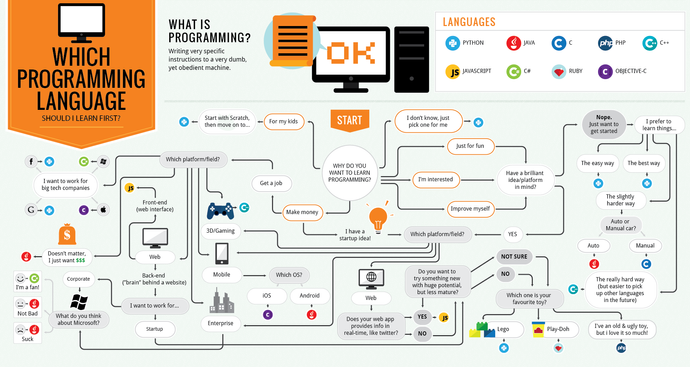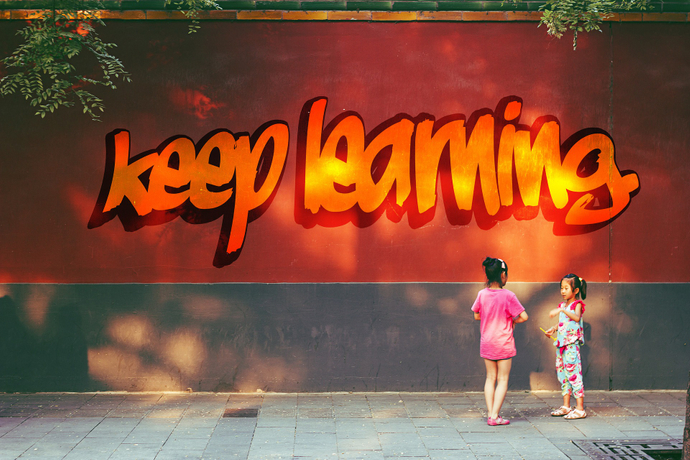How to learn any new skill in 20 hours or less.
We humans are learning machines.
Due to the way our brains work we might not beat a computer in Math or Physics. Most of us can’t win against a medium difficulty chess computer. Damm, Google’s team beat the best EU’s GO player some weeks ago! (GO is much harder for computers than chess is).
But what we lack in numerical or concise storage power we compensate by being _amazingly good _at learning thingsin a very short period of life.
We learn new things, fast. We just need the right mindset and framework to unlock our potential.
“Intellectual growth should commence at birth and cease only at death.”
—Albert Einstein
A new skill can be acquired in around 20 hours. You won’t be a master at it—for which you need 10 thousand hours—, but you will be way better than the average person.
If 20 hours sound like a lot of time, consider that you only need to spent 45 minutes each day for a month practicing in order to have 20 hours of practice. You can skip a Netflix session and you’ll be closer to your achievement.
Look at it this way: use one single month and you’ll be reading, coding, or dancing way better than the average. Need to learn something to get promoted, land that new job or win a challenge? Apply this 20-hour-framework and you’re set.
I learned how to juggle and how to decently dance Salsa in less than 10 hours. Learning how to read faster than 99% of people and how to build a custom website using WordPress and Underscores took me more or less 20 hours. Yup.
Let’s get to it then; here’s 5 steps (or maybe 6, we’ll see) you need to take in order to learn anything.
The 20-hour-framework to learn (almost) anything in a 20 hours or less.
1) Decide what you want to learn. Be specific.
We are learning machines and we need specific input in order to have a coherent output. Think of inserting a specific value coin into a dispenser and selecting the goodie you want to get. Selecting the wrong one or inserting the wrong coin will provide unwanted results.
Input and output (_i/o). _
If you start by choosing a too-wide topic, like “writing”, “dancing” or “learning an instrument” you’ll end up overwhelmed and you’re more likely to quit.
A perfect example of this is people wanting to learn to code. There are dozens of in-demand programming languages and wanting to “learn to code” will only get you jammed into choosing “the perfect programming language”. You will never find it because it doesn’t exist.
[caption id=“attachment_3074” align=“alignnone” width=“2000”]
However! If you choose a specific topic, say, learning to dance Salsa, to write short stories, to read faster or learn to play specific guitar songs; then you have chosen your playing field. Everything will be much clearer after that.
This is crucial in order to open up the doors to the next requirements.
2) Choosing the medium.
There are many ways to learn something and many places to learn it from. It’s crucial that you stick to one for now, do some research and choose a “good enough”, but don’t be too picky! We’ll review this later.
Choose the technique, source or method to learn your new skill.
If you want to learn to move your hips at the tun-tun of cuban Salsa you’ll need a teacher. It can be the sexy latino guy who teaches a class around the corner or that girl in YouTube with a channel called “SalsaNow.
For coding and writing (among a zillion of other things) there are countless sources of information: Lynda.com, CodeCademy, tutorials, books, the good old classroom!
Each medium has advantages and disadvantages, online vs offline, accessibility vs personalisation. Each one will prove more fit to different people, what’s important here is to choose your medium and stick to it in order to not waste time and to avoid the trap of endless research. More on this later.
3) Promise yourself a cookie.
Accountability is one of the most important factors you need in order to succeed at building a new habit or continuing with it. This applies a great deal when it comes to learning new skills.
If you have a hard time (like most of us do) in continuing with a routine, promise yourself something, a “cookie” at the end of a marathon that will help you move forward at hard times.
Promise yourself you’ll do this. You’ll learn basic guitar, get twice more visitors on your blog, build an app, game or website; choose yours and stick to it. Post it on social media and tell your friends about it, ask them to make you accountable for this new challenge. Write it down and put it where you can see it _every day. _
It’ll help a great deal!
4) Practice, practice, practice. Show up!
Allocate time each day or week to your practice. Make it non-negotiable as you would a business meeting, otherwise you might postpone it… forever.
Eighty percent of success is showing up
—Woody Allen
Consider this: you only need to practice half an hour every day for a month in order to get 20 hours of practice. Practicing 20 hours is just about what you need to learn any new skill, to surpass that awful learner’s wall that prevents us from feeling comfortable with something.
Once you become comfortable with your new skill, you’ll be able to write more and better, to code more complex apps, to start discovering your own rhythms. You will step into your dancing partner’s foot without feeling utterly ashamed of yourself, instead you’ll be able to say “sorry” with a big smile and swim them around in a sombrero movement.
5) Stop, review your progress and medium. Adjust direction and continue!
If you find your path to be rockier than expected once you’ve invested some time learning (5 to 10 hours) it could be that the medium you chose is not offering a smooth experience.
Maybe learning Salsa from YouTube is not your thing, try to find a class near you to solve it. Learning to code from books is amazing for some people, maybe you’re better off with visual input, try Lynda.com instead.
Use this break to stop and ask yourself: “am my moving at the right speed? Is there something I can change to improve my learning experience?“. It’s likely there will be; this is the time to adjust your direction and continue at a higher speed than ever.
While learning to juggle I started with bouncing balls. Every time they fell I had to run after them. Once I changed for non-bouncing balls my learning improved dramatically.
The same when I learned Salsa. Dancing with strangers in a class wasn’t my thing. Some friends invited me to join them in their class and in a matter of weeks I felt like I could rock the floor.
Remember that a little rock falling in the right place can become a snowball or cause an avalanche. Don’t underestimate the power of constant adjustment.
6) Repeat.
This is a simple one but is the most important one: re**peat.**
Go back to the basics, don’t let your ego, bad judgement or lack of motivation pull you down. We’ve all been there. What gives greatness is not the inherit value you already have but your possible potential. Unlock that potential.
If you feel you’re not doing the right thing or you’re doing the right thing in the wrong way, stop for a moment and consider:
- Is the topic too wide? Can it be scaled down to become more effective?
- Is the medium the correct one? Could changing the medium ease the experience?
- Are you committing to your decision? Remember the power of compound effect, do it even if you don’t feel like it, otherwise you’ll fall into the snoozing the alarm trap. We are beings of habit, sometimes you only need to get in the zone by practicing.
Remember that:
We learn from failure, not from success!
—Bram Stoker
**Even if things are going smoothly. **It’s important to always stop every now and then to review your progress and methods. Ask yourself “what little thing could I change to greatly improve my learning?“. I bet you there is something with high resistance that you can easily remove.
Do this with anything and everything and I assure you a world of possibilities will be revealed.
Now, go and conquer the world!
Burn the dancefloor! Write your soul down! Code that app that nobody has thought of yet! (wow).
I’d love to know if this article helped you in any way, even if it was to go through your lunch un-bored. Comment below of tweet me up @ObedParla.

